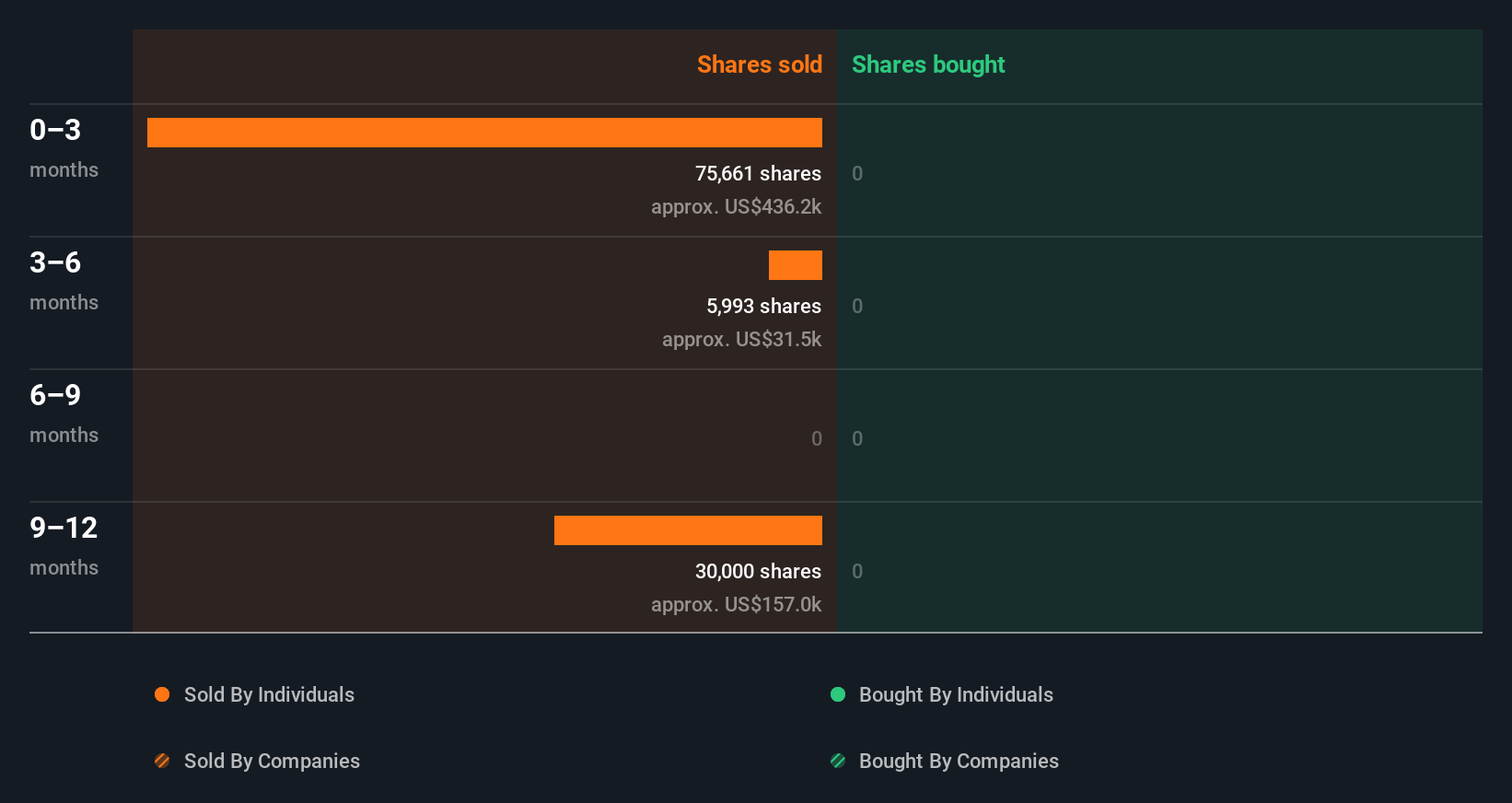Cricut Insiders Sell US$620k Of Stock, Possibly Signalling Caution
A number of Cricut, Inc. (NASDAQ:CRCT) insiders sold their shares in the last year, which may have raised concerns among investors. When evaluating insider transactions, knowing whether insiders are buying is usually more beneficial than knowing whether they are selling, as the latter can be open to many interpretations. However, when multiple insiders sell stock over a specific duration, shareholders should take notice as that could possibly be a red flag.
While we would never suggest that investors should base their decisions solely on what the directors of a company have been doing, we do think it is perfectly logical to keep tabs on what insiders are doing.
Cricut Insider Transactions Over The Last Year
In the last twelve months, the biggest single sale by an insider was when the Senior VP of Legal & General Counsel, Matt Tuttle, sold US$230k worth of shares at a price of US$5.69 per share. That means that even when the share price was below the current price of US$6.61, an insider wanted to cash in some shares. We generally consider it a negative if insiders have been selling, especially if they did so below the current price, because it implies that they considered a lower price to be reasonable. However, while insider selling is sometimes discouraging, it's only a weak signal. It is worth noting that this sale was only 20% of Matt Tuttle's holding.
In the last year Cricut insiders didn't buy any company stock. The chart below shows insider transactions (by companies and individuals) over the last year. If you click on the chart, you can see all the individual transactions, including the share price, individual, and the date!
Check out our latest analysis for Cricut

If you like to buy stocks that insiders are buying, rather than selling, then you might just love this free list of companies. (Hint: Most of them are flying under the radar).
Cricut Insiders Are Selling The Stock
The last quarter saw substantial insider selling of Cricut shares. In total, insiders sold US$431k worth of shares in that time, and we didn't record any purchases whatsoever. This may suggest that some insiders think that the shares are not cheap.
Does Cricut Boast High Insider Ownership?
Many investors like to check how much of a company is owned by insiders. I reckon it's a good sign if insiders own a significant number of shares in the company. It's great to see that Cricut insiders own 18% of the company, worth about US$254m. This kind of significant ownership by insiders does generally increase the chance that the company is run in the interest of all shareholders.
So What Do The Cricut Insider Transactions Indicate?
Insiders haven't bought Cricut stock in the last three months, but there was some selling. Looking to the last twelve months, our data doesn't show any insider buying. On the plus side, Cricut makes money, and is growing profits. The company boasts high insider ownership, but we're a little hesitant, given the history of share sales. So these insider transactions can help us build a thesis about the stock, but it's also worthwhile knowing the risks facing this company. For example, Cricut has 2 warning signs (and 1 which doesn't sit too well with us) we think you should know about.
Of course, you might find a fantastic investment by looking elsewhere. So take a peek at this free list of interesting companies.
For the purposes of this article, insiders are those individuals who report their transactions to the relevant regulatory body. We currently account for open market transactions and private dispositions of direct interests only, but not derivative transactions or indirect interests.
Have feedback on this article? Concerned about the content? Get in touch with us directly. Alternatively, email editorial-team (at) simplywallst.com.
This article by Simply Wall St is general in nature. We provide commentary based on historical data and analyst forecasts only using an unbiased methodology and our articles are not intended to be financial advice. It does not constitute a recommendation to buy or sell any stock, and does not take account of your objectives, or your financial situation. We aim to bring you long-term focused analysis driven by fundamental data. Note that our analysis may not factor in the latest price-sensitive company announcements or qualitative material. Simply Wall St has no position in any stocks mentioned.
 Wall Street Journal
Wall Street Journal